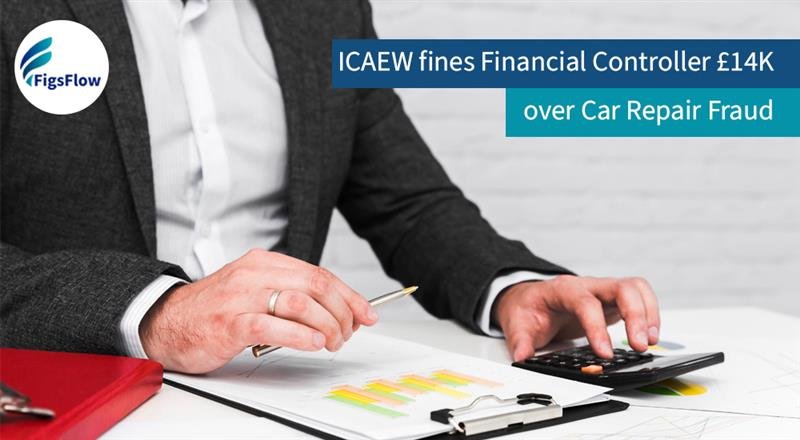ICAEW has fined a financial controller with a bill of £14,000 for wrongly utilising company funds to pay for the repairs of his personal car and falsifying the company’s invoices to cover it up.
The accused person had been allegedly using company funds to pay for a private car repair without authorisation and falsifying the purchase. While the allegation was not proven, the ICAEW found that he lacked integrity and acted dishonestly in his conduct.
While it may not be pertinent to discuss the finer details of the case and accusation (because it was not proven), it may be best to look at the investigation and how ICAEW arrived at the conclusion of the fine so that others may learn lessons from this.
ICAEW Fines’ Case Background
A member of ICAEW was employed as a financial controller at a company, where he oversaw managing company records and accounts and had access to the company’s accounting system.
In 2022, he authorised a company payment that included money for the repairs of his private car. To disguise this personal expense, he entered a false invoice into the system.
ICAEW raised the following four allegations against him.
- He stole a certain amount (for his car repairs) from the company.
- He paid for private expenses out of company funds without authorisation.
- He posted a false invoice entry.
- He lacked integrity.
Of these allegations, the first was dismissed, and the third was proven. On an unrelated note, it is also worth noting that HMRC has also been targeting “unethical” tax advisers. This shows that the UK government is determined to root out irregularities in the accounting, bookkeeping and tax advisory sectors.
Intention vs Perception: ICAEW’s Decision
With respect to the last two allegations, he acknowledged that with the benefit of hindsight and time, his actions could be seen as dishonest by an external party in isolation. However, he maintained that his intention was always to reimburse the invoice after discussing it with his superior.
However, ICAEW’s tribunal identified several flaws in his explanation and reached the conclusion that the accused created a false entry in the accounting records to cover up unauthorised payment.
Tribunal’s Ruling
The tribunal also considered both mitigating and aggravating factors. Mitigating factors included the accused’s lack of prior disciplinary record, the isolated nature of the incident, his admission of the misconduct and cooperation with the investigation, while aggravating factors included his deliberate nature to cover up the payments, abuse of his position as financial controller, and a breach of trust.
The tribunal fined him £3,000 and ordered him to pay £10,717 in costs to ICAEW. The total amount to be paid was, therefore, £13,717.
This truly serves to show just how important regulatory compliance is in this sector.
Conclusion
This case serves as a sobering reminder of the importance of integrity, transparency, and proper record-keeping within any financial role. For bookkeepers and financial controllers alike, even a single lapse in judgement, whether intentional or not, can lead to professional consequences and reputational damage.
That is where tools like FigsFlow come in. Designed with accountants and bookkeepers in mind, FigsFlow streamlines proposal and engagement letter management, helps maintain an audit trail of approvals and ensures clarity and consistency in communication. By automating routine compliance tasks and offering pre-approved templates, it reduces the chances of oversight or error, supporting professionals in upholding the highest standards of ethics and conduct.


